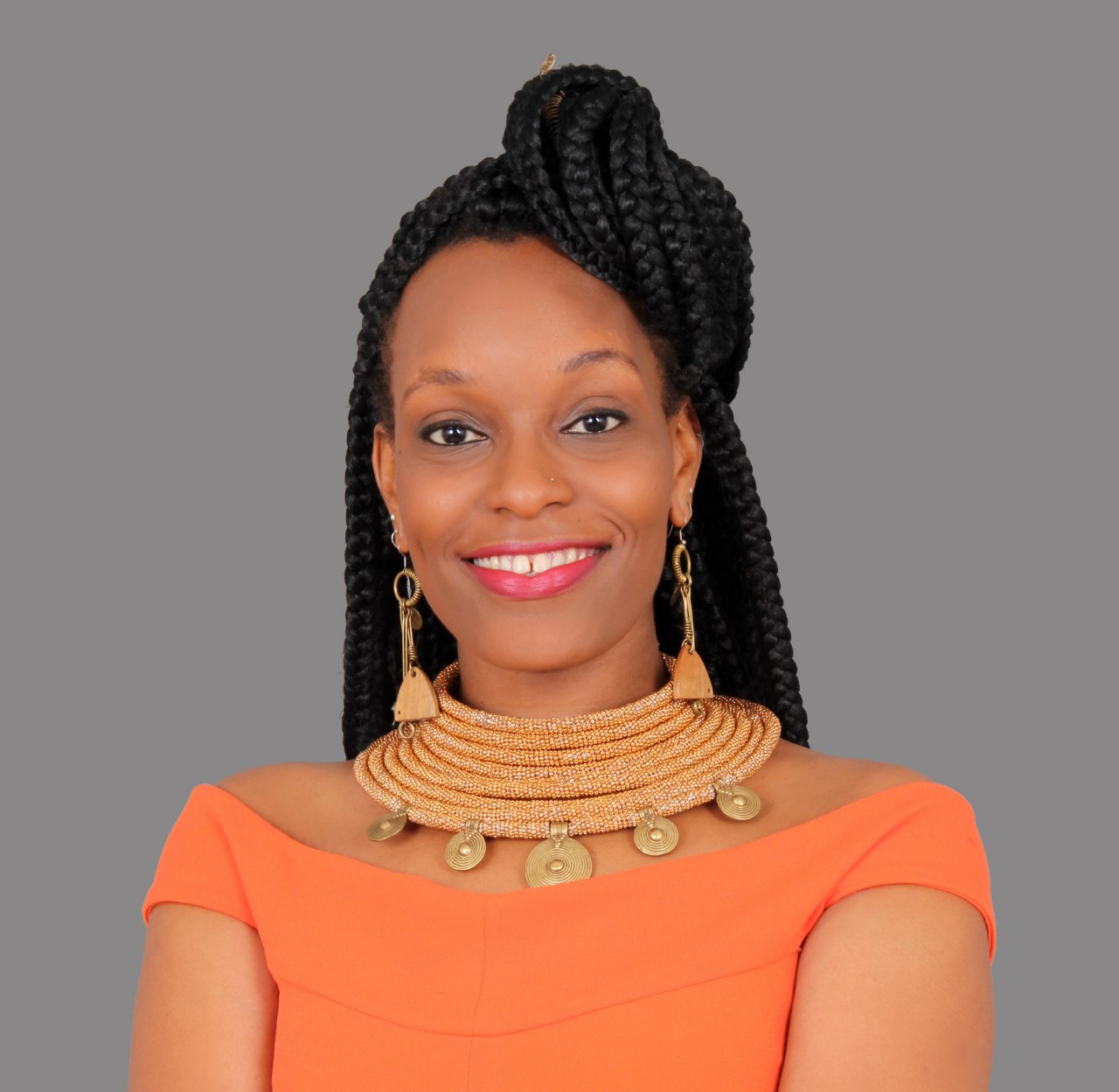Digital Art, Storytelling and Empowerment | Tanzania
EAS correspondent and Tanzanian-based creative Elizabeth Mwambulukutu reports on an empowering 2-day digital canvas workshop dubbed "Kutoka Canvas Kwenda Digitali", held in Dar es Salaam in December. As co-founder of Arts and Culture for Development Africa (AC4D)¹ and of the storytelling project "Hapo Zamani za Kale", Elizabeth helped to facilitate and organize this workshop.
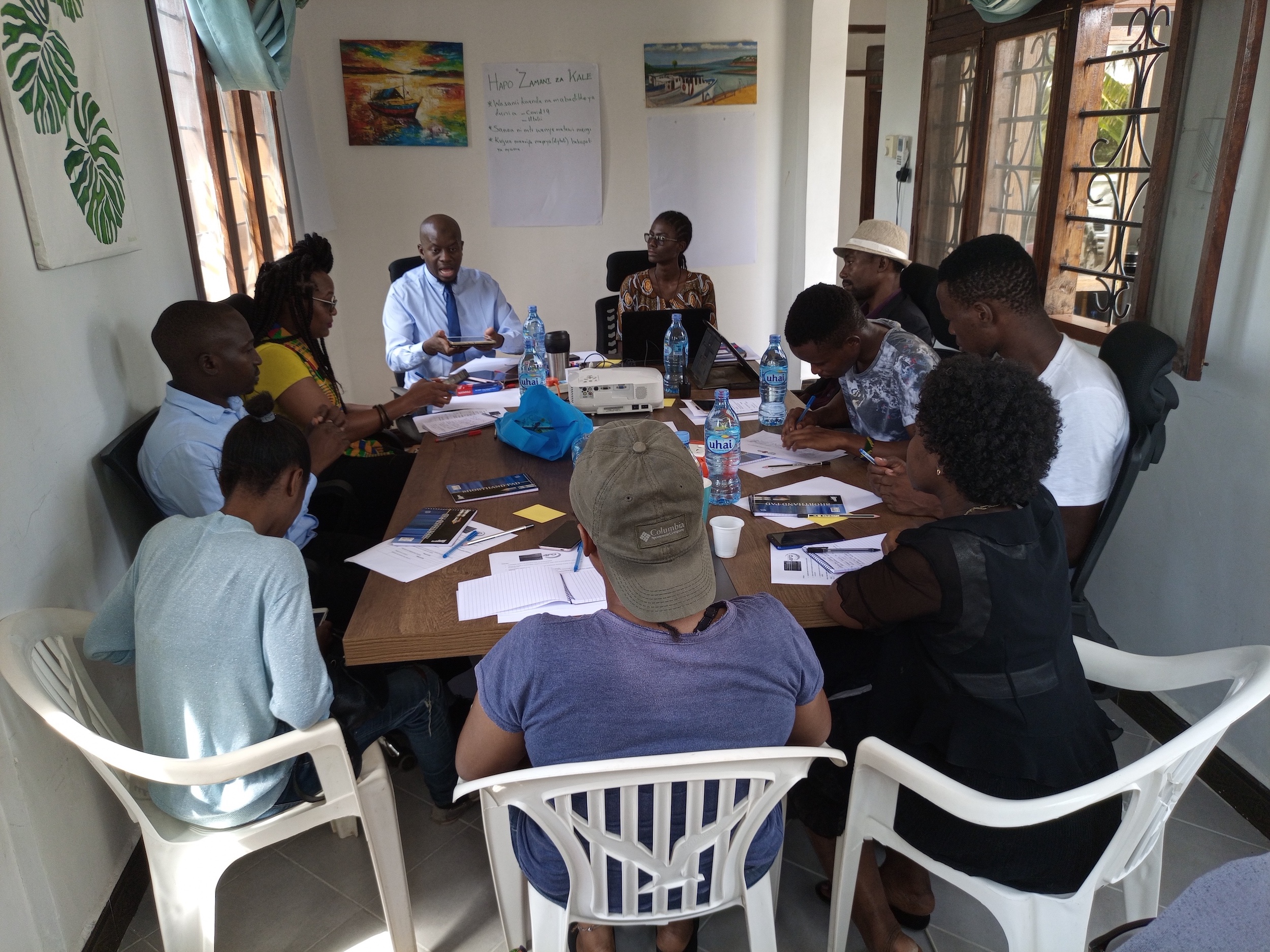
"Kutoka Canvas Kwenda Digital" [From Canvas to Digital] Workshop
Art is never static. Due to globalization and technological advancements, various industries around the world consistently experience disruptions in their practice and, like its counterparts, art is no exception.
Realizing this challenge, renowned cartoonist and media personality Masoud Kipanya teamed up with the "Hapo Zamani za Kale" [Once Upon a Time] cultural storytelling project, using his journey as an artist to support, mentor and inspire six young Tanzanian artists through a practical workshop that exposed them to new art practices beyond the canvas. “Art is like a tree with many branches into which artists can venture and explore.” were Kipanya’s opening words to the Kutoka Canvas Kwenda Digital workshop session. The workshop is part of the "Hapo Zamani za Kale" (a project of Aqua Farms Organization-AFO²) that aims to preserve, restore and promote the culture and art of traditional storytelling and African stories in Tanzania using mixed and multimedia through children's storybooks, visual art, podcasts and animation.
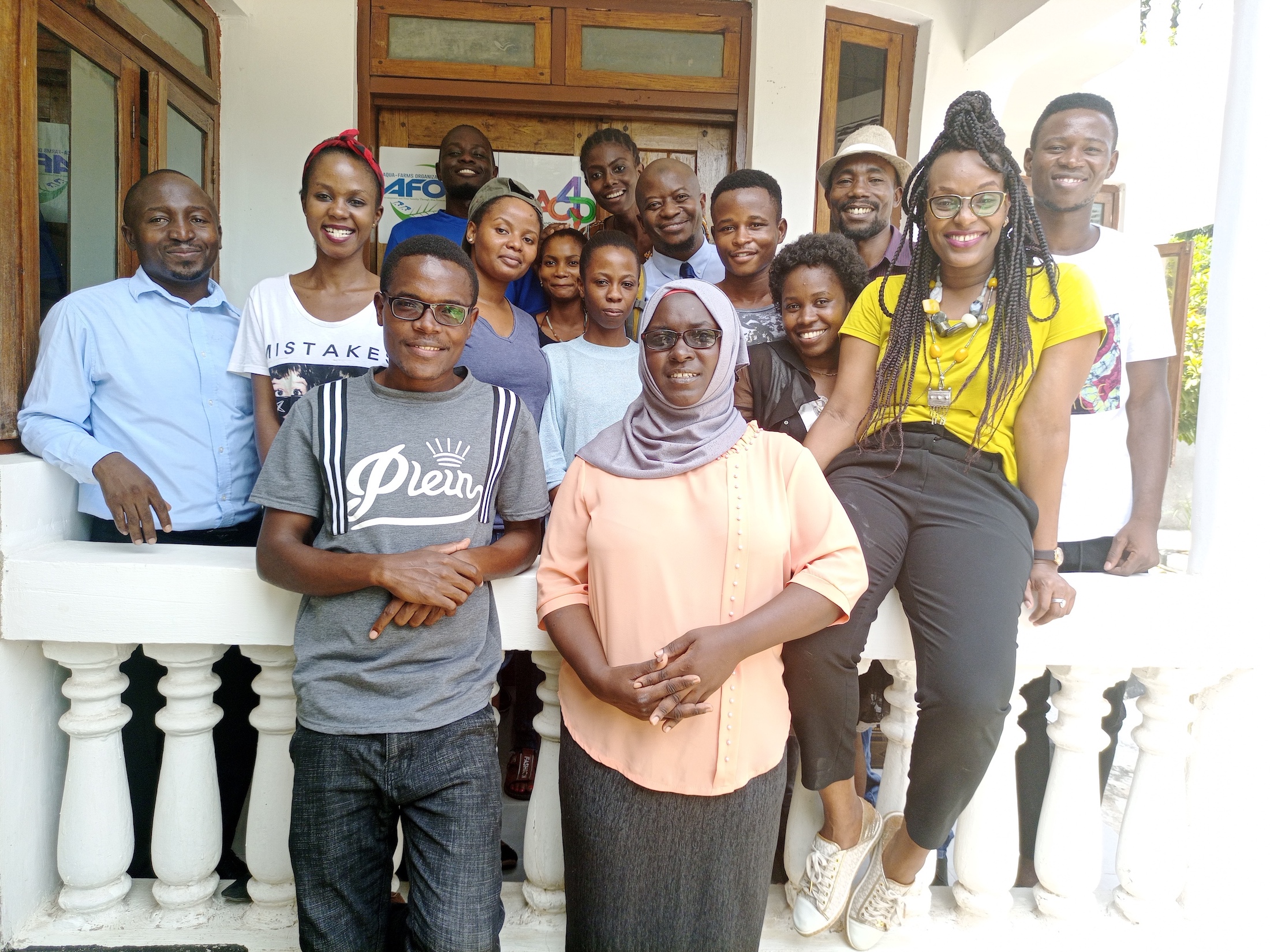
Currently and globally, COVID-19 has exposed many industries to vulnerabilities, forcing them to think beyond business as usual. In the area of visual art, most African visual artists still rely on traditional techniques for practicing art. Such limitations may lead to a mismatch between emerging global trends, the changing creative economic landscape and existing art practices, which may also lead to African visual artists missing out on new opportunities.
Many African visual artists depend on a single traditional art form (i.e. fine art/painting on canvas) or a single consumer market (i.e. tourists), limiting their access to income generation streams. In Tanzania, visual artists have few platforms to learn practical skills from industry experts who have broken glass ceilings through their creativity.
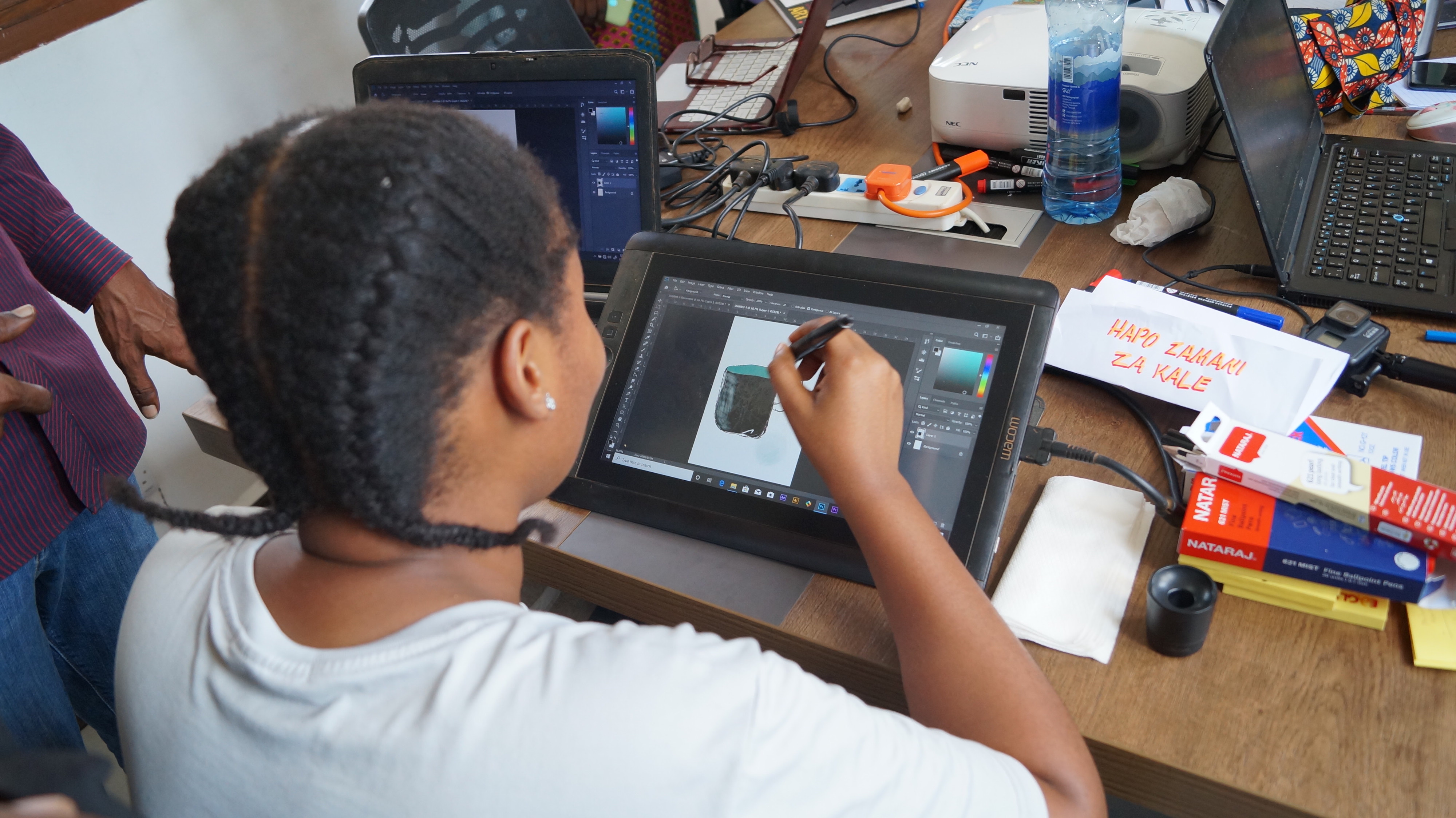
Speaking about the workshop, facilitator Annastazia Gura, co-founder of "Hapo Zamani za Kale", said: “We are thrilled to partner with Masoud Kipanya in exposing visual artists to new possibilities for expanding their art practice. The workshop allowed artists to learn and apply new knowledge in using digital creative tools - a canvas, paint brush, palette knife and colour palette, to name a few. We have seen the effects of technological advancements in other sectors of the economy, it is high time we expand these to the creative industry. This is exactly what inspired "Kutoka Canvas Kwenda Digitali". We see it as a pathway for visual artists to gain new skills and seek new avenues for generating income.”
The workshop training presented an unparalleled opportunity for visual artists to not only meet a role model, but to share experiences, expand their expertise through the use of technology, make new professional connections and gain exposure to creative thought processes, such as creating storyboards. Kipanya emphasized the importance of visual artists being versatile, flexible and adaptable to changing technological advancements around the world. He said: “It is important that Tanzanian artists learn how to be like chameleons through their art practice [in order] to adjust to emerging trends and diversify their techniques.”
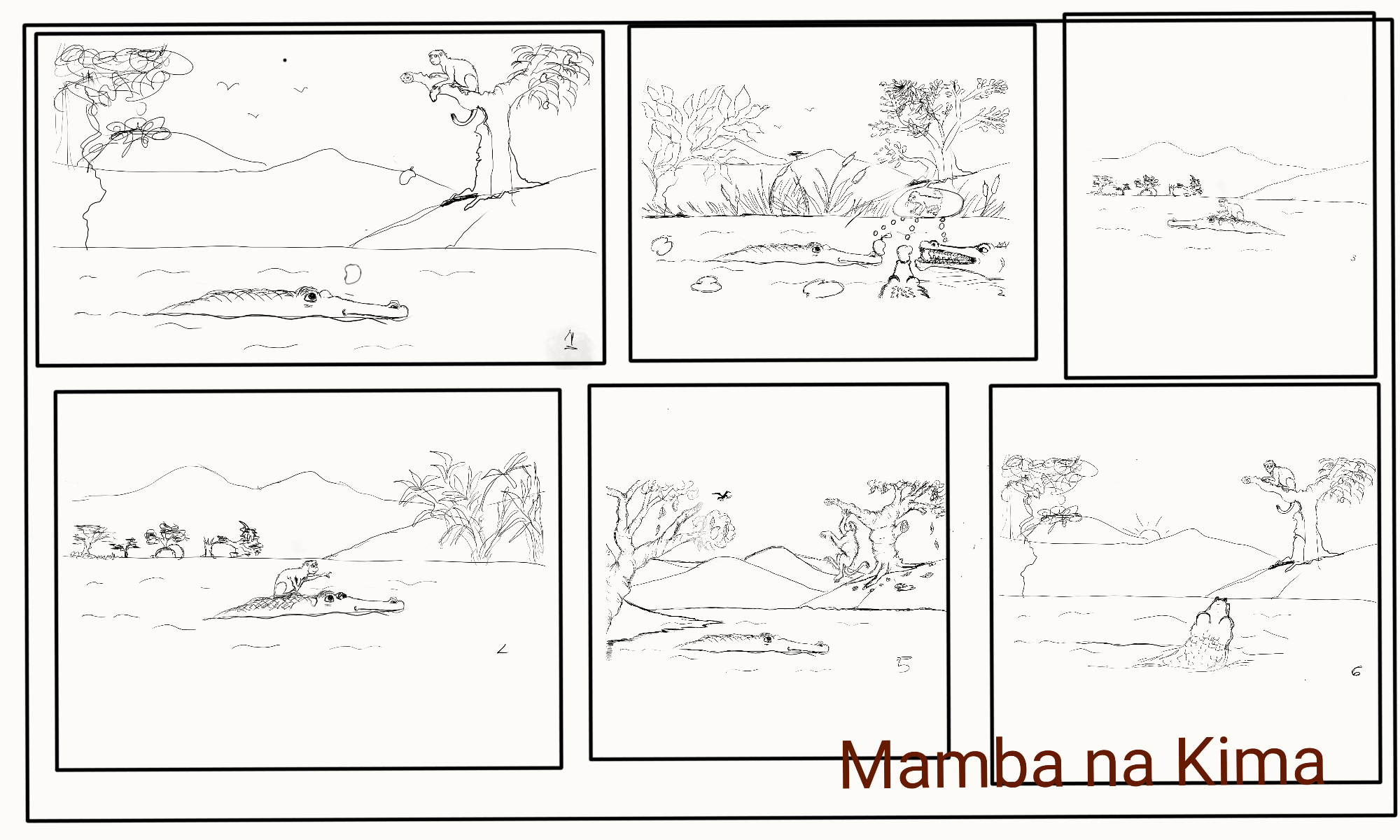
Introducing the workshop’s objectives, Kipanya went on to say: “The objective of this workshop is to introduce you to the world of digital illustration. If you hear someone introducing themselves as an illustrator, do not be intimidated, because an illustrator is also a visual artist just like you. Before doing anything as a visual artist, you either sketch using paper and pen or using your creative mind.” The use of technology in art allows artists more flexibility compared to drawing on canvas using paints and brushes. For example, if an artist is exhibiting their work in a traditional fine art form, the digital version or presentation of their artwork will likely be an image taken of their artwork through their smartphones or an image scanned through a printer. This not only affects the quality of the digital version of an artwork but presents higher risks of damaging the work, if not handled correctly. Unlike drawing on canvas, the use of technology simplifies creative workflow, be it from resizing or repositioning objects/subject. Everything can be done through the use of technology, maintaining the quality of an artwork and saving time by enhancing the speed of the output. Advancements in technology also allow artists to get the feel of the making process through using the digital equivalent of artistic tools, be it canvas, paint, paint brush or palette knife.
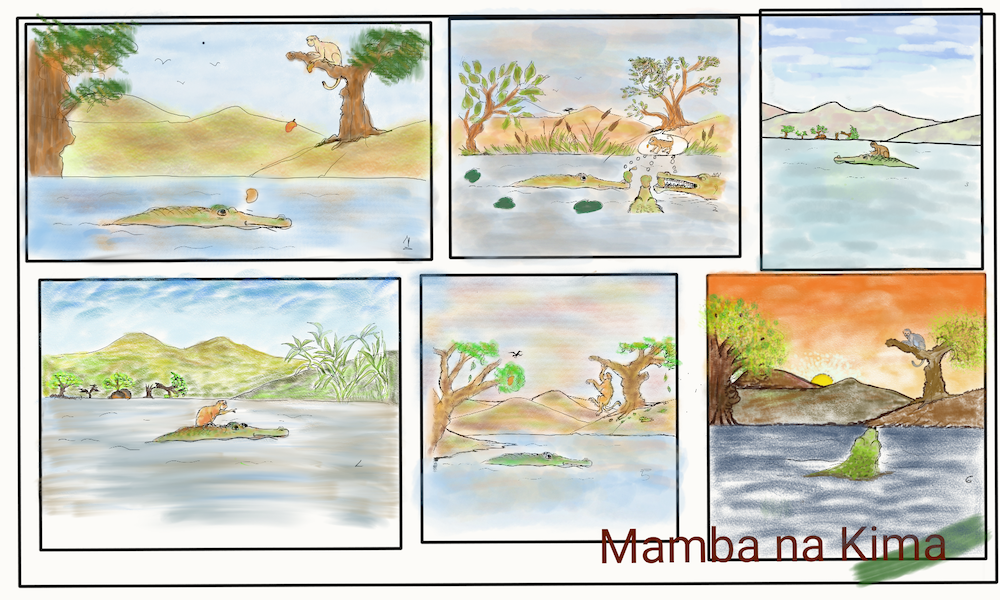
In Kipanya’s session on digital art and creation of a storyboard, the visual artists were put to the test using a storytale called “Kima na Mamba” read deliciously by the "Hapo Zamani za Kale" team. The storytale was among those collected by the "Hapo Zamani za Kale" project in the Tanga region. Six visual artists teamed up to interpret, imagine and translate the storytale from words into imagery under the close supervision of the creative guru Masoud Kipanya. The visual artists used six boxes, each representing a different scene from the storytale.

Workshop Participants, Benefits and Take-Aways
The "Kutoka Canvas Kwenda Digitali" Workshop was attended by a total of 16 participants including visual artists, "Hapo Zamani za Kale" and Aqua Farms Organization team members and a sign language expert from Tanzania Association of Sign Language Interpreters (TASLI). Selected through a competitive call for artists, the cohort of artists selected from Arusha, Dar es Salaam, Iringa and Tanga regions included three male artists, George Emmanuel, Mustafa Sumaya, Albano Sylvester who is an artist living with a disability and three female artists Shija Masele, Jennifer Msekwa and Brenda Kibakaya.
The workshop aimed to empower Tanzanian visual artists with digital skills, to compete in the 21st century. It provided artists with new opportunities for creating, showcasing and marketing their work. Lastly, it inspired and motivated emerging Tanzanian visual artists who learned about the journey and experience of an expert in the industry.
Jennifer Msekwa, Tanzanian artist and environmental activist says: “As modern artists, we need to have skills that can help us to compete with today’s world of science and technology. As an artist from a developing country, I think it is important to add new skills, especially through digital technology from canvas to digital skills.” In her artwork she addresses issues of gender discrimination and depicts African women who suffer from family duties without help from men.

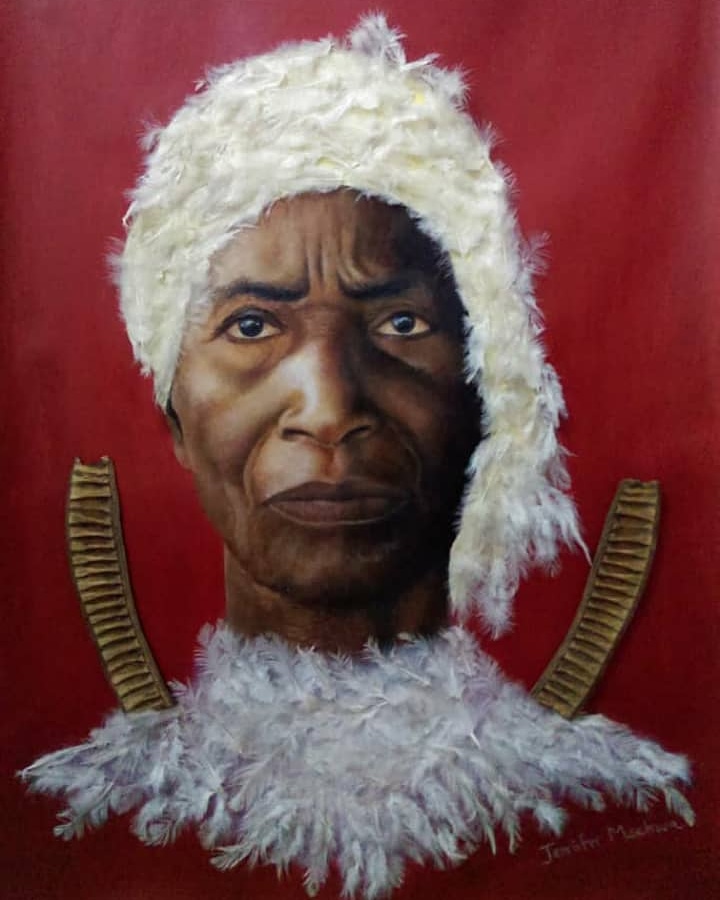
Albano Sylvester, an artist living with a disability commented: “Having a disability and [the] challenge of being unable to communicate verbally, I often go to training and I am forced to use pen and paper in order to communicate. I am impressed to have found a sign language expert at this "Kutoka Kanvasi Kwenda Digitali" workshop which has allowed me to learn, participate fully and enjoy sessions like the rest of my fellow participants.”
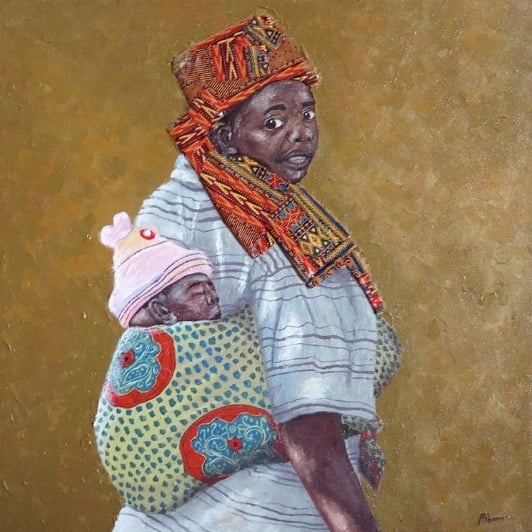
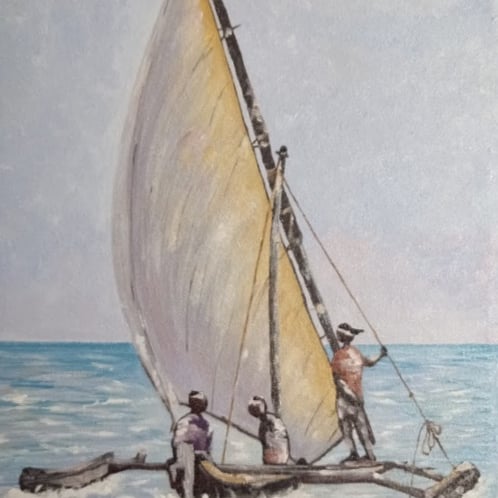
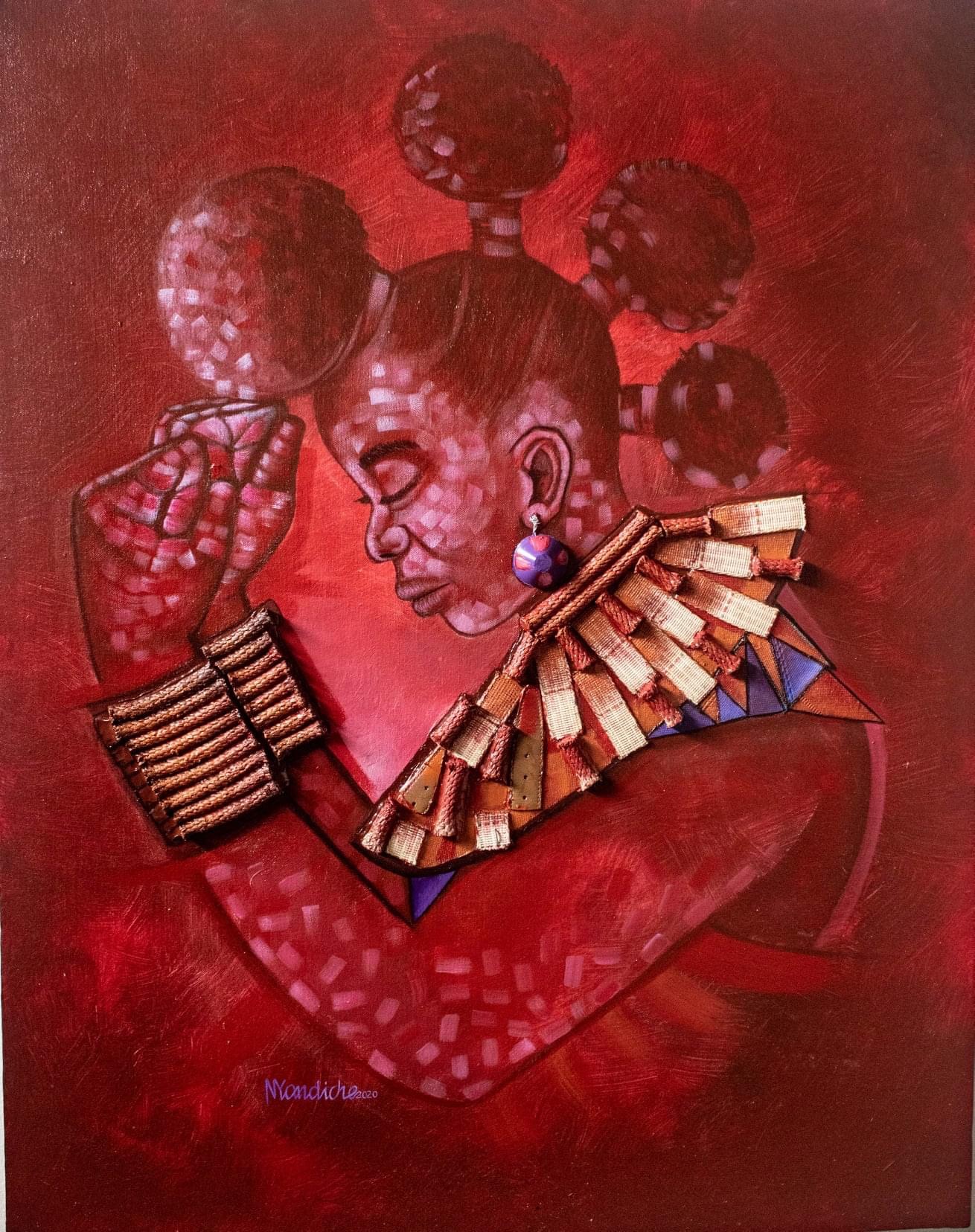
George Nyandiche, speaking about this work Women in Power says “Women are the ones who bring new beings to life. Therefore, every new generation starts with a woman. The source to life. Women are not as weak as society’s perception; they give birth to children and fight for them to survive and keep them safe. Women are very powerful. They persevere in difficult situations, care for others well-being and think critically about the benefits of everyone else within their families.”
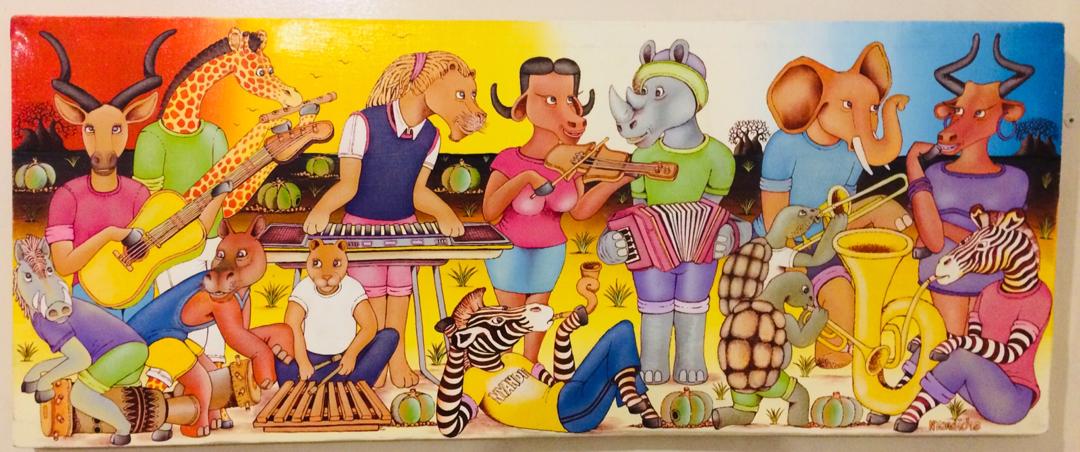
Artist Mustafa Sumaya, speaking about his own transition to digital art explained, “Digital arts/illustration is like killing three birds with one stone. Wherever you are, all you need is the internet connectivity. There is no need for colour mixing settings as the full colour printing of Cyan, Magenta, Yellow, and Key (CMYK) is already matched, thus giving the artists the advantage of maintaining the quality of their work. Lastly, there is the discarded need for scanning of the artwork, thus allowing [for the] easy sharing of one's work.”
Emergent Insights and Concluding Thoughts
I. Artists should be at the frontline in preserving, restoring and promoting Tanzanian arts and culture.
II. Visual artists have a role to play in contributing towards quality education given that visual learning is
key to stimulate learning in young minds, enhance education materials and create comprehension ability.
III. More opportunities are needed for women and persons living with disabilities in the area of visual art.
IV. To this end, the advancement of technologies presents limitless possibilities for a creative to contribute
towards this.
Tanzania is rich in art and culture and our creative industry has great potential. We believe visual artists have a significant role to play when it comes to preserving, restoring and promoting our rich culture. This workshop has sparked new interest among participating artists. We see it as an opportunity for young men, women and persons living with disabilities to expand their horizons in the creative industry, while gaining exposure and mentorship from creative industry experts.
1. AC4D is a Tanzanian initiative whose primary purpose is to use art to inspire, educate and provide opportunities to shape the future of creatives. AC4D uses artistic mediums to embrace cultural identity to shape community narratives.
2. Aqua-Farms Organization is a non-governmental organization dedicated to replenishing aquatic resources with community-based conservation and sustainable aquaculture.
ABOUT THE AUTHOR
Elizabeth Mwambulukutu is a development communications practitioner and an award winning visual artist committed to shaping the African narrative. She serves as the Regional Communications Manager for WaterAid in East Africa. Elizabeth is driven to advancing Tanzania's creative industry through the restoration, preservation and promotion of authentic African stories. Elizabeth is the co-founder of Arts and Culture for Development Africa (AC4D) and the creative mind behind Elle Emmanuel Photography. She's a Mandela Washington Fellow, Vice Curator for Arusha Global Shapers and Fellow of the Young and Emerging Leaders Project, an initiative of the LéO Africa Institute.
FURTHER INFORMATION LINKS
Hapo Zamani za Kale || AquaFarms Organisation - AFO || Arts and Culture for Development (AC4D)
